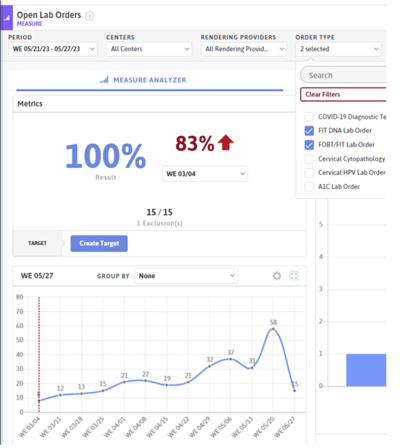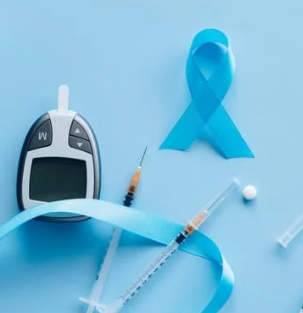In Part One of the blog series, I shared stats and facts to help better understand colorectal cancer prevention and how to improve screening rates. Now let's explore some simple ways to use Azara DRVS to assist in engaging your patients for colorectal cancer screening and follow-up.
 Identify Patients for Screening
Identify Patients for Screening
By utilizing the measure analyzer, users can identify patients who are due for colon cancer screening—especially those who are new to the denominator (ages 45-50). Not only can you identify who is due for screening, but evaluate what method for screening the patient had done previously (colonoscopy, FIT or FOBT). By looking at which screening method the patient completed prior and outreaching them with the same option may increase the likelihood they complete the screening again. Not only can you identify users overdue for screening, but you can utilize filters to focus on certain races/ethnicities, at-risk populations, or populations with certain social drivers of health (SDOH). For example, patients who have identified transportation as an SDOH trigger, could be specifically outreached for at home testing to eliminate the barrier.
Tracking FIT Orders: Open and CompletedWith the ease and rise of at home testing for colorectal cancer, Azara DRVS can help track these orders. Once the care team has placed a FIT or Cologuard order for the patient, open orders can be tracked. A low percentage on open lab orders indicates that many of the orders are closed. Filters can be added to show both FIT DNA and FOBT. The ordered date, received date, and completed date are all pulled from the practice’s EHR and are dependent on established workflows. These open orders provide practice's with a way to track who has FIT kits that are not yet completed. Reports can be run by week, month, quarter, etc. to determine a cadence of outreach to patients to remind them to complete the test and mail it back. Trends can also be analyzed such as how long on average it takes patients to send the kits back, when is the optimal time to outreach patients, and how the orders are being placed for the lab tests. The completed volume of tests can be tracked through the Lab Volume Dashboard shown below.

Azara Patient Outreach (APO) helps ease the burden of manual outreach methods by introducing automated text messaging programs that identify patients in Azara DRVS visit and care gap data. APO can be used to significantly improve patient response rates, resulting in higher patient compliance and better quality measure performance. Additionally, APO streamlines resource usage and decreases manual labor from clinical staff. Texting is proven to be a highly effective method to engage safety net patients. Not only does it improve patient engagement, but also interaction and communication between patients and their providers. Outreach methods can vary from call, letter, text, to a combination of all. For example, an APO campaign can be used to increase the number of FIT kits returned by sending text reminders to patients with open lab orders, reminding them to return their kit. Working with Azara, APO campaigns can be customized to your practice to support organizational needs. Within DRVS, practices and staff can measure the success of APO programs through measures, scorecards, and dashboards. Thus, practices can ensure the ability to review and track results for efficacy and efficiency.
Even though colorectal cancer is often highly treatable, the diagnosis can be a major ordeal—interrupting careers and impacting personal finances. FIT is a staple of many health system screening programs, offering a convenient and inexpensive strategy to increase patient participation in screening and overall colorectal cancer screening rates. Thus, early screening (through a variety of modalities) remains crucial in providing patients with the best care and shared decision-making experience. Using DRVS data and tools are imperative to better understand patient demographics, performance metrics, and screening trends.
Want to learn more? Contact your client success manager or solutions@azarahealthcare.com.
Related Articles

Value-Based Care Foundations Part 2: A New Chapter in Risk Adjustment
Explore Insights
Socioeconomic Status, Access, and Control: Rethinking Diabetes Outcomes
Explore Insights
